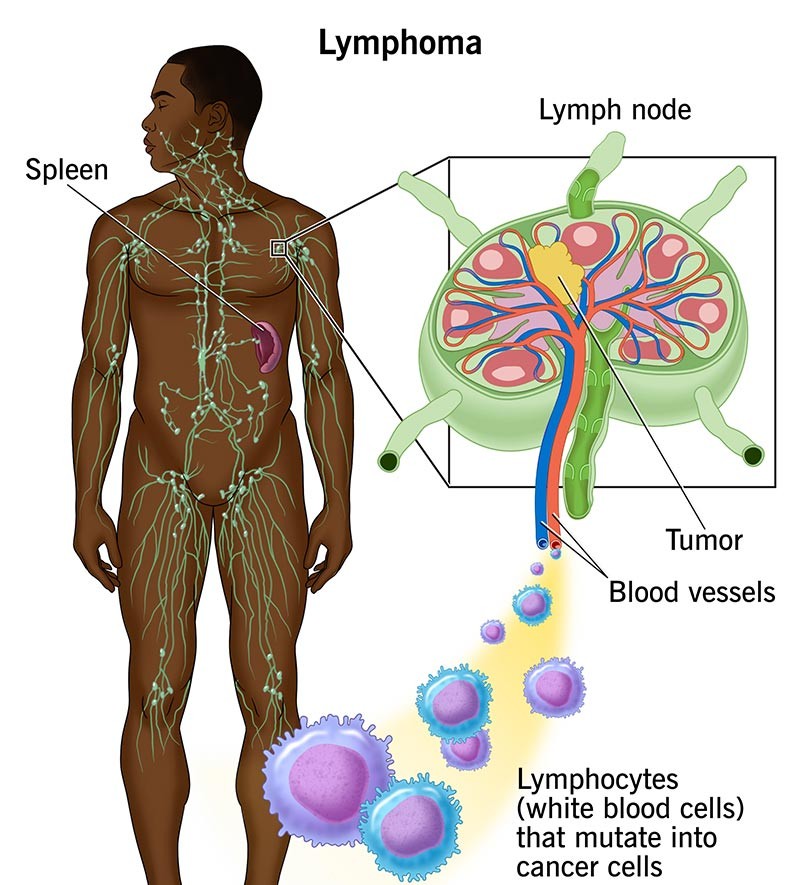Hospitals Available with this Lymphomas Treatment






Department: Oncology
Estimated Cost : $1200 - $2500
“Lymphoma” is the general term for cancer in your lymphatic system the network of tissues, vessels and organs that help your body fight infection. It’s considered a blood cancer because the condition starts in white blood cells (lymphocytes) in your lymphatic system.
There are two main lymphoma categories Hodgkin lymphoma and non-Hodgkin lymphoma and more than 70 lymphoma subtypes. Lymphomas can be aggressive (fast-growing) or indolent (slow-growing). Often, treatment can put lymphoma into remission or cure it. Children, teenagers and adults may develop lymphoma. This article focuses on lymphomas that affect adults.
No, lymphoma isn’t common. The American Cancer Society estimates 89,000 people in the U.S. will be diagnosed with lymphoma in 2023. For comparison, 236,740 people in the U.S. will receive a lung cancer diagnosis in 2023.
Non-Hodgkin typically affects ages 60 to 80. It’s more common in men than in women.
Hodgkin lymphoma may affect people between the ages of 20 to 39 and at or over age 65. Men are slightly more likely to develop Hodgkin lymphoma than women.
Many lymphoma symptoms are like symptoms of other, less serious diseases. Having these symptoms doesn’t mean that you have lymphoma. But you should consider talking to a healthcare provider whenever you have changes in your body that don’t go away within a few weeks.
Symptoms common to Hodgkin lymphoma and non-Hodgkin lymphoma can include:
Lymphoma happens when the white blood cells in your lymphatic system change (mutate) into rapidly growing cancer cells that don’t die. Like most cancers, the majority of the genetic mutations that cause lymphoma happen spontaneously, without an identifiable cause. But research suggests the following conditions or issues may increase your risk of developing lymphoma:
Healthcare providers diagnose lymphoma by doing physical examinations to evaluate potential lymphoma symptoms and biopsies to obtain tissue for examination by a medical pathologist. If laboratory tests show signs of lymphoma, providers may do certain blood and imaging tests to learn more about your condition and to plan treatment.
Blood tests
@2025 Healtour Solutions Pvt Ltd. All Rights Reserved.